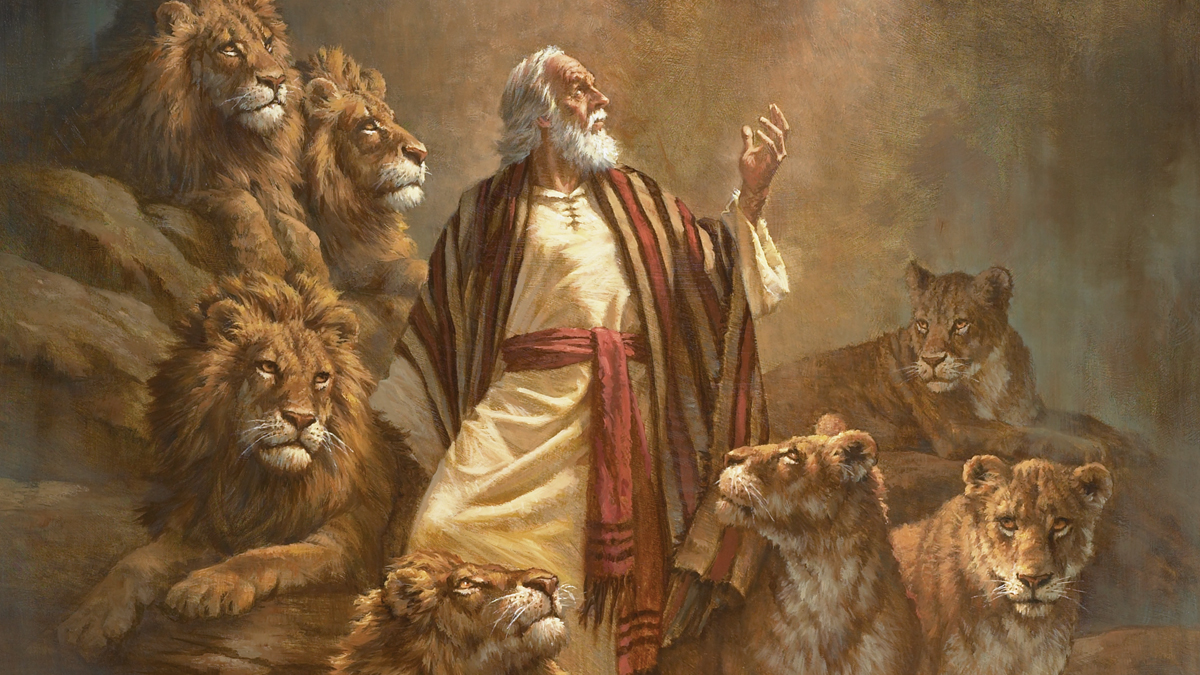The law said, "Anyone found making a petition to any man or God rather than the King for 30 days must be thrown into the lions den." (Daniel 6:7)
Daniel is honoured as someone who disobeyed the king's law in order to obey the higher law of God. He went home and he continued his practice of praying to God at his open window towards Jerusalem three times a day just like he always had.
And, God does NOT save him from the consequences of breaking the king's law. Daniel is arrested, he is taken before the King, and he is thrown into the lions den. Just like the king's law demands.
God respected the king's authority and allowed the law to be preserved, even though it was unjust. But the moment that law was fulfilled God acted. He closed the lions mouths. Daniel spent the night in a pile of lions and in the morning he was released from the lions den. The law had been fulfilled. There was no reason to keep him there any longer.
God respected the king's law and then over came it.
Then I started thinking of other times in the Bible when God did the same thing.
Moses. In this story God is not mentioned, but we can see His fingerprints all over the events.
The events surrounding the birth of Moses are recorded in Exodus chapters 1 and 2. Long story short, the Pharaoh made a law that said that any Israelite baby boy that was born must be thrown into the Nile river. When Moses is born his mother hides him for three months. But eventually she has to act because she will be discovered. So she obeys the law. She puts Moses in the Nile, just like the law demands. But, she is clever, she obeys the letter of the law, and circumvents the spirit of the unjust law by placing Moses in a basket before she puts him in the water.
Then God acts. At exactly the right time the daughter of the Pharaoh shows up, rescues the baby and adopts him as her own son, and then hires the baby's own mother to be his nanny. God could have acted on any day of those three months before Moses' mother obeyed the law, but he didn't. He waited until after the law was obeyed and then he acted to save the baby.
Another example, in Daniel chapter 3 we read the story of Shadrach, Meshach and Abednego. King Nebuchadnezzar has made a giant golden statue and has decreed that when the music plays everyone must bow to it or else they will be thrown into the fiery furnace. Shadrach, Meshach and Abednego refuse to bow. And God allows the King to carry out his law. The three young men are thrown into the furnace. And, Jesus joins them there. Their bindings burn off but nothing else burns or is even singed. God allowed the unjust law to be carried out and then displayed His power to save the three men from the consequences of the law.
There are others, Jesus and the temple tax, (Matthew 17:24-27) Jesus paid the tax even though He did not have to because He was the Son of the God the temple was built to worship. However the rulers in Israel refused to recognise Jesus' authority. So Jesus paid the tax because He didn't want to offend them, but not from His own money, God performed a miracle for Him and provided the money by way of a fish.
Jesus, Jesus himself was victim of an unjust application of the law of man. And God did not save Him. God allowed Him to die. And then three days later He resurrected Him, and as a result we are also saved from the consequences of God's law.
I can't think of any examples where God disregarded a law that was unjust or inconvenient to Him. Always He respects the laws of man, even when they are plain wrong. He keeps the law and then uses His power to overcome the consequences of the law.
If God does this with our laws, then it is only logical that He will keep his own laws. He won't be breaking or disregarding or changing His own laws. But for those who ask, He uses His power to save us from the consequences of those laws. Maybe those consequences mean death. But death is not the end, because after death comes the resurrection.




